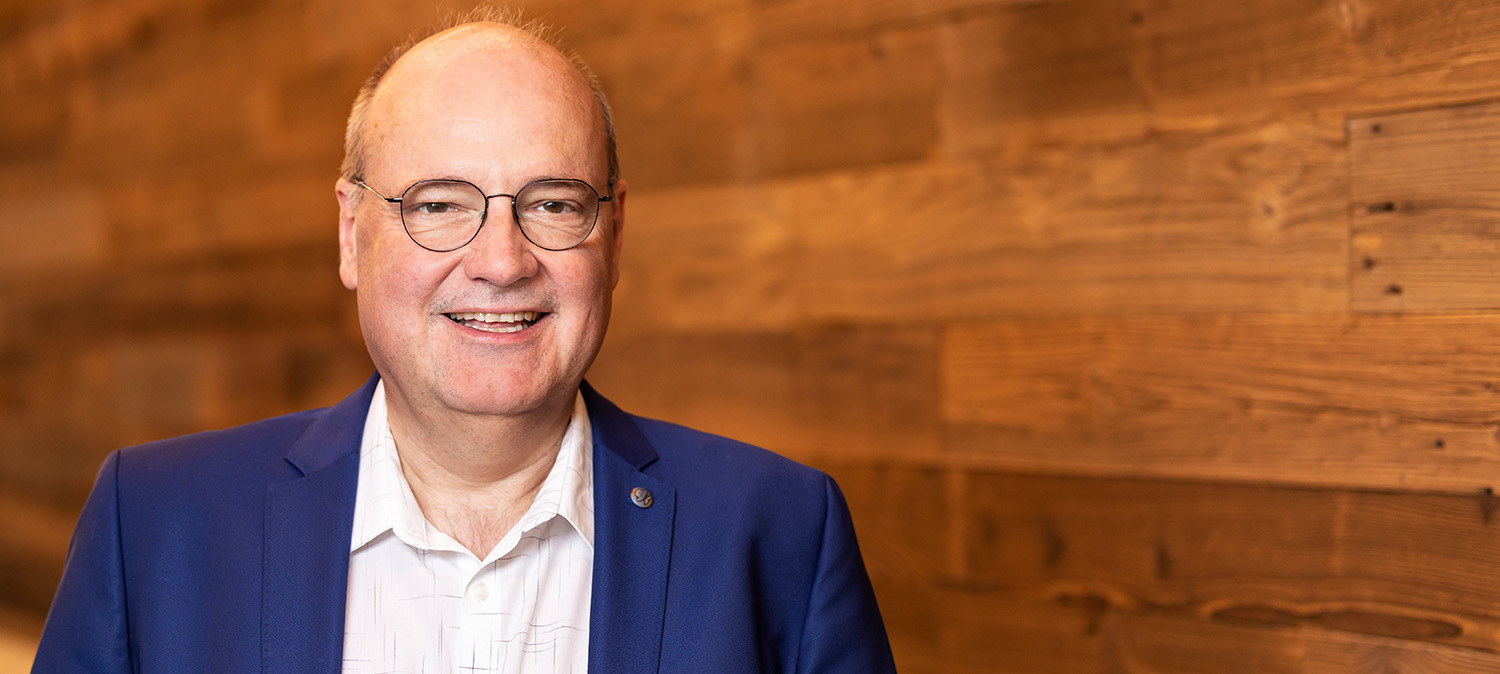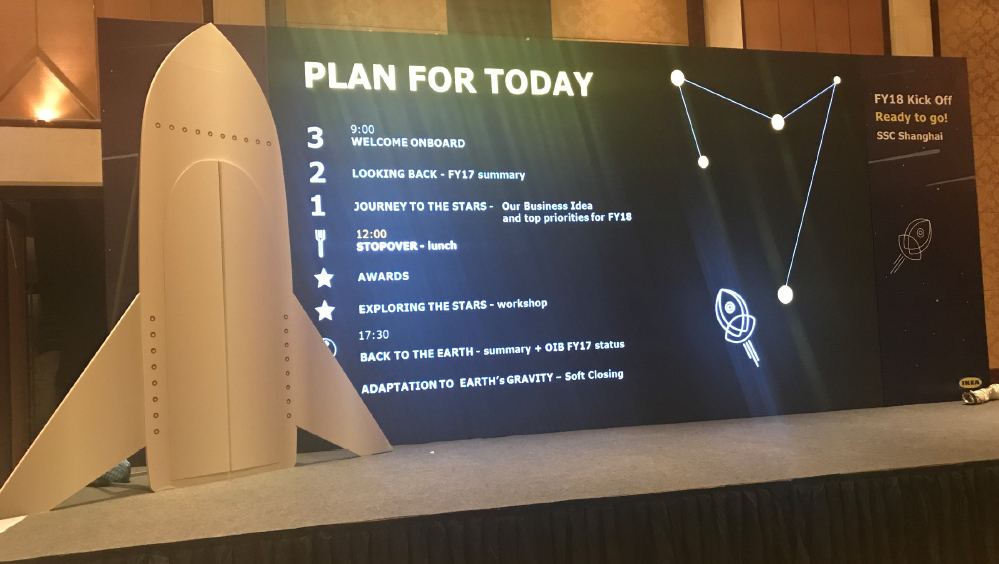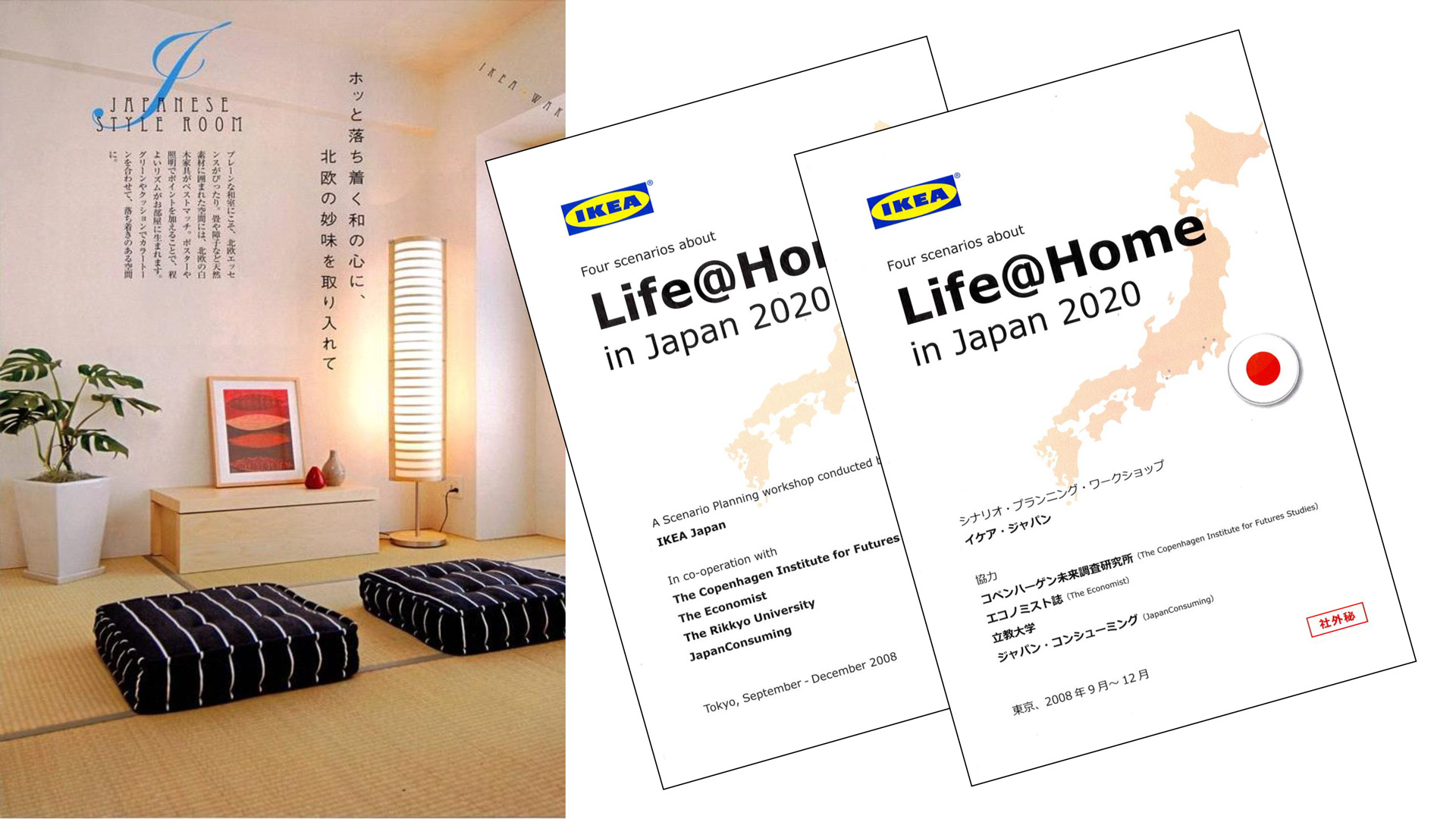
Business Cases
Shaping the future positively and ensuring true sustainability
What do strategic foresight, strategy development and implementation look like in companies? To give you an insight into my practical work, I have compiled a few selected business cases here.
IKEA Group Shared Services: «Life@GSS 2030 - People, Places, Processes»
Taking a next step in Shared Services was the ambition for IKEA’s Group Shared Services (GSS) in 2015 and to evolve from two rather independent Shared Service Centers (SSC) in Poland and China to a true global operation by creating a lean group function and -management and by integrating the North American HR Service Centre. Getting appointed to lead this undertaking was the most rewarding assignment I could imagine: Building up a team from scratch, experiencing what cross-border and cross-cultural leadership means guiding a whole strategy creation process from A-Z!
Strategic foresight: The starting point was to do an «inventory» where the organization is, where the Global Business Services industry is heading and to create a common direction for the team so all move towards the same vision. For this purpose, the scenario planning workshop «Life@GSS 2030 – people, places, processes» sketched different futures. Its outcome represented a fair summary what most experts would see as a relevant GBS agenda, however, this view about the future was created inside the organization with as many as 50 people from all locations and hierarchies, included all perspectives and spread the leaders’ approach of including people and be transparent with our direction.
Strategy development: Based on the outcome of the scenario planning workshop the GSS management developed with the support of two external experts the strategy framework consisting of a mission statement and 10 strategic ambitions for 2020+ that were summarized to 3 (+2) high level goals.
Strategy implementation: The strategy launch happened with parallel kick-offs in the locations and contained common agenda parts as well as individual parts tailored to the local needs. The big value of such an event, I believe, is the inclusion of most of the key people in the preparation and the discussion how to present the different strategy elements on the stage, discuss and decide what is common, what not and why. Creating such a «momentum» combines fun, creativity and business in perfect harmony. What happens is not only a memorable event fostering the sense of belonging, also, after there is a «bottom up» approach from the individual teams how to contribute to the strategy in parallel to the «official» business- and action plans that cascade through the organization. An investment that is worth the effort as well as every penny and hour invested!
PS Here is a content follow up of the Strategic Foresight project «Life@GSS 2030 - people, place, processes»

IKEA Russia: «Growing IKEA Shopping Centres Russia together - FY 2014-16»
The CEO of IKEA Shopping Centres Russia (that today is called Ingka Centres Russia) called the hugely successful turnaround of the organization in 2010-2013 an «open heart» operation: it was about operating 14 commercial centres across Russia (whereas two were in the pre-opening phase) with yearly 260 million visitors (twice the Russian population!) and at the same time running 15 substantial change programs including construction, processes, risk management and decision-making structures. I joined as CFO, led Finance (including Business Controlling and Billing & Credit Control), headed two of the change initiatives and participated in the overall transformation leadership team.
Strategy Development: The created strategy framework was fit for the purpose to handle all issues at once, i.e., besides the change programs also to continue developing the shopping experience. This by tackling the real big issues only, we called them «elephants» and defined them as having a significant impact or represent a big potential. With this approach we handled the huge challenge in a very simple structure: We have 2 objectives, one handled in 15 projects to re-establish governance and control, and the other tackled by 11 elephants to continue developing the business.
Strategy Implementation: The most critical undertaking in turnaround initiatives is the cultural and behavioural change in all functions and units. To achieve this, we ran two impressively memorable country wide kick offs with more than 200 participants each. These events went far beyond strategy launches and marked the start of true cross-functional cooperation, supporting best-practice sharing and evolving towards one common rather than 14 individual approaches even in a country that is as big as Russia with its big distances, different time zones and mentalities.

IKEA Japan: «Life@Home in Japan 2020»
In 2007 IKEA opened its first two stores in Japan. This meant more than just entering a new market, and therefore the company took many initiatives to understand Japan’s business culture and retail environment to be successful in its market launch. On behalf of IKEA Japan’s CEO, I was co-leading with the Copenhagen Institute for Futures Studies (CIFS) and the support from the Economist group and the Rikkyo University the scenario planning workshop «Life@Home in Japan 2020», which was about developing views how Japanese homes could look like in 2020.
An important part of the project was to increase the understanding about Japan and its living culture among IKEA expatriates as well as growing the knowledge about IKEA’s culture and business idea among the Japanese colleagues. The four scenarios were built around the uncertainties whether Japan’s society would stay on its high economical level and keep its small income variation or move towards a two-class society, and whether, also influenced by IKEA’s market entry, the interest in the home would increase.
The output served two purposes: First it was the base for the coming business planning and secondly, the commercial team derived from it the positioning, not only in the commercial-, but also in the labour market, where IKEA with its almost 50% female leaders was predestined to take an active role to promote female leadership in in Japan’s male dominated business society, and as a socially responsible and environmental-friendly company.

IKEA Poland: «Creating IKEA Poland 2015»
In 2004 Poland joined the European Union together with six other countries from the former «East Block» that finally ended the 60 years of division of Europe. Having fulfilled the convergence criteria (or «Maastricht criteria») for the EU accession the question then was how Poland will develop further.
On behalf of IKEA Poland’s country management, I was co-leading with the Copenhagen Institute for Futures Studies the scenario planning workshop «Creating IKEA Poland 2015» with some 30 colleagues from the different Polish IKEA units. The scenarios how Poland as a county could look like in 2015 and what this would mean for IKEA were built around the open questions how successful it will be in achieving economical growth and whether values would move towards individualism or whether the society will keep its rather traditional values.
With the outcome, that turned out to be on very high and relevant quality, we provided a solid and appreciated base to the business units for their Business Planning in a time where predictions were difficult and, not to underestimate, to some experts in all units about the Polish future. One participant accurately summarized her learning as follows: «I still don’t know the future, but I have learnt what to do depending on the way it will go, and that there is a future for IKEA in Poland, even if things will turn as bad as in the Nightmare Scenario».

Are you ready to find out more?
Get in touch with me and schedule
a complimentary discovery call.


